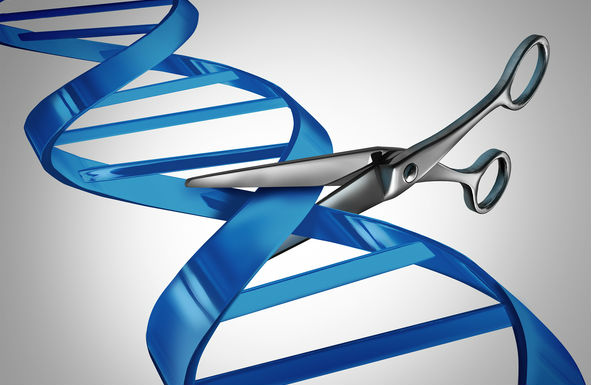
The first company-sponsored clinical trial of a gene therapy edited using CRISPR/Cas9 technology has dosed its first patient.
CRISPR Therapeutics and Vertex Pharmaceuticals – respectively based in Zug, Switzerland, and Boston – said Monday that they had infused the first patient in their Phase I/II study of the therapy, CTX001, in transfusion-dependent beta-thalassemia.
Shares of CRISPR were up about 20 percent on the Nasdaq in late-morning trading Monday. Shares of Vertex were up only slightly. CRISPR had also announced its fourth quarter and full year 2018 financial results.
The trial is designed to enroll 45 patients in a single-arm fashion and has estimated primary and study completion dates of February 2021 and May 2022, according to ClinicalTrials.gov. Patients in the study will be infused with CTX001 following myeloablative conditioning with the chemotherapy drug busulfan. A second trial, also Phase I/II and enrolling 45 patients, tests the therapy in sickle cell disease and is expected to infuse its first patient in mid-2019.
Another gene therapy, bluebird bio’s LentiGlobin, is also being developed for beta-thalassemia and sickle cell disease. However, it is a lentiviral vector-based therapy that does not use CRISPR/Cas9 gene editing. CTX001 is an ex vivo therapy, whereby patients’ hematopoietic stem cells are engineered to produce high levels of fetal hemoglobin in red blood cells.
The Food and Drug Administration gave the companies the go-ahead to begin the sickle cell disease trial in October, while simultaneously accepting their Investigational New Drug application to start it. The agency had lifted a clinical hold placed on the trial in May when the companies filed their IND. The hold was placed “pending the resolution of certain questions that will be provided by the FDA as part of its review” of the IND, but it did not affect the beta-thalassemia study.

Using Data to Help Healthcare Practices Succeed
A new report from Relatient, A Data-Driven Guide to Patient Access Succes, highlights how focusing on data accuracy and relevance can enhance the performance of healthcare practices.
“Treating the first patient in this study marks an important scientific and medical milestone and the beginning of our efforts to fully realize the promise of CRISPR/Cas9 therapies as a new class of potentially transformative medicines to treat serious diseases,” said CRISPR Therapeutics CEO Samarth Kulkarni, in a statement.
CRISPR/Cas9 gene-editing technology has been touted as a way to help the development of everything from gene therapies to CAR-T and other cell therapies, particularly “off-the-shelf” allogeneic CAR-Ts that can be made from donor cells rather than the patient’s own cells.
It has also been the subject of a few controversies. It was the subject of a patent interference lawsuit between the University of California Berkeley and the Massachusetts Institute of Technology’s Broad Institute, both of which claimed to have been inventors of the technology. In September, the US Court of Appeals for the Federal Circuit ruled in the Broad’s favor.
In November, Chinese scientist He Jiankui caused an uproar in China and globally when he announced the birth of two twin girls in whom he had used CRISPR technology to make them resistant to HIV. Last week, it was reported that by knocking out a gene called CCR5, He may have also inadvertently enhanced the girls’ memory.
Photo: wildpixel, Getty Images










